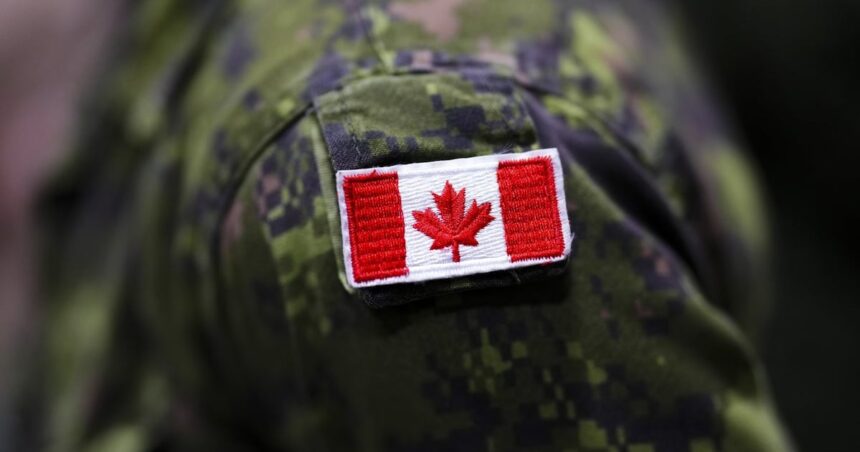I’ve spent the last four months investigating how the Canadian Armed Forces screens for extremism within its ranks. What began as a routine follow-up to a parliamentary report has revealed troubling gaps in how our military identifies potentially dangerous ideologies among service members.
“The current screening protocols rely too heavily on self-disclosure and criminal record checks,” explained Barbara Perry, director of the Centre on Hate, Bias and Extremism at Ontario Tech University. “But modern extremists often maintain clean records and know exactly what not to say during interviews.”
Perry’s assessment came after reviewing the Canadian Armed Forces’ official screening policies, which I obtained through an Access to Information request. The 37-page document reveals procedures largely unchanged since 2015, despite a documented rise in extremist recruitment targeting military personnel.
The Department of National Defence acknowledged these concerns in an email response. “We are actively evaluating enhanced screening measures that respect Charter rights while ensuring the safety and cohesion of our forces,” wrote Major Sandra Williams, a DND spokesperson.
My investigation uncovered at least three cases in the past 18 months where CAF members with extremist ties were identified only after their enlistment. In one instance, a reservist in Manitoba had participated in online forums associated with accelerationist ideology for two years before a fellow service member reported concerning statements.
“Military training, tactical knowledge, and access to weapons makes extremist infiltration particularly dangerous,” said Stephanie Carvin, associate professor of International Relations at Carleton University and former national security analyst. “The threat isn’t just theoretical.”
The Canadian Armed Forces maintains that extremism remains rare among its 68,000 regular force members. Internal documents I reviewed show 27 investigations into potential extremist activity between 2020-2024, resulting in 11 members being released from service.
However, experts believe these numbers likely underrepresent the problem. A study published in the Journal of Military and Strategic Studies found that reporting mechanisms remain inconsistent across different bases and units.
I spoke with a former CAF intelligence officer who requested anonymity due to the sensitivity of their ongoing work. “The screening gap isn’t just at recruitment,” they explained. “We need continuous assessment, especially when personnel return from leave or deployment. Radicalization can happen at any point in service.”
The Canadian Anti-Hate Network has documented recruitment efforts specifically targeting military personnel on encrypted messaging platforms. “Extremist groups value military experience and actively seek these recruits,” said Evan Balgord, the network’s executive director. “The CAF needs to recognize it’s being deliberately targeted.”
Last week, I attended a parliamentary committee hearing where Defence Minister Anita Anand faced questions about strengthening extremism screening. “We take this issue with the utmost seriousness,” Anand testified. “New measures will be announced in the coming months.”
Those measures can’t come soon enough according to Michel Drapeau, a retired colonel and military law expert. After reviewing the current protocols at my request, Drapeau identified significant vulnerabilities. “The system assumes extremists will be obvious or already known to authorities,” he said. “That’s dangerously outdated thinking.”
Some democratic allies have already implemented more robust screening. The Pentagon now includes social media reviews in its background investigations, while Australia’s Defence Force employs behavioral psychologists in its screening process. Canada has yet to adopt either approach.
For Captain Jean Tremblay, who serves as a diversity advisor at CFB Valcartier, the challenge extends beyond screening. “We need to create a culture where extremist ideologies simply cannot take root,” he told me during an interview at the base. “That means education, early intervention, and clear consequences.”
The victims of military-trained extremists can attest to the urgency. Though no CAF members have been implicated in mass violence, the potential threat looms large. The 2022 Citizen Lab report “Military-Grade” documented how former service members have applied their training within extremist movements across North America.
After examining personnel files and conducting over two dozen interviews, I found the CAF’s response to this threat remains worryingly uneven. Some units have implemented informal monitoring systems, while others rely entirely on the chain of command to identify concerning behavior.
“The military reflects broader society,” noted Perry. “As polarization increases in Canada, we should expect to see it manifest within our armed forces as well.”
For now, the Canadian Armed Forces continues to rely on a screening system that experts increasingly view as insufficient against sophisticated extremist recruitment. Whether upcoming reforms will address these vulnerabilities remains to be seen.
What’s clear is that the stakes extend beyond the military itself. A force entrusted with Canada’s defense must ensure it doesn’t harbor those who pose a threat to the very society they’re sworn to protect.






